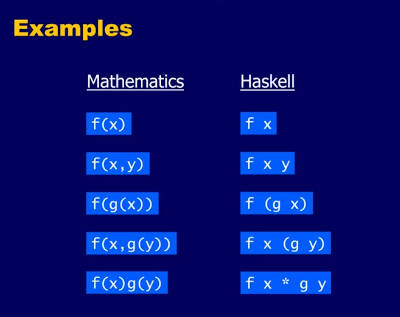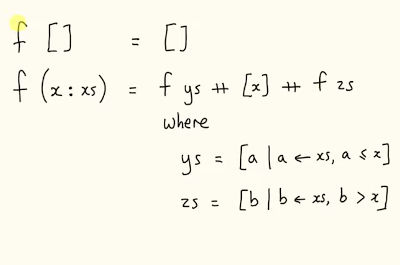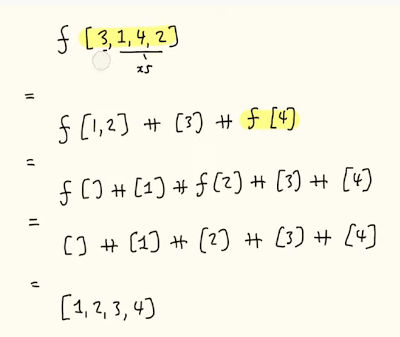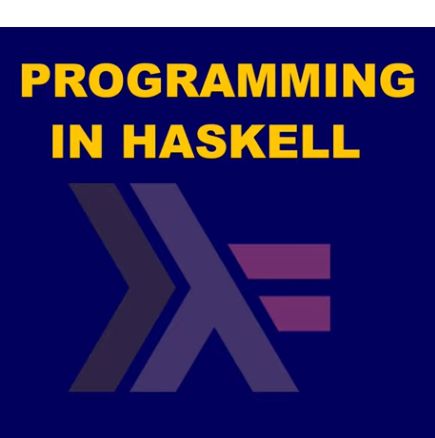| Free Course On Functional Programming in Haskell |
| Written by Nikos Vaggalis |
| Monday, 22 March 2021 |
|
Videos from an introductory course by Professor Graham Hutton from the University of Nottingham have been made freely available on YouTube. Designed for first year Computer Science students, they teach the basic principles of functional programming using Haskell. Graham Hutton is a well-known authority for the FP community. He is a Professor of Computer Science at the University of Nottingham, where he co-leads the Functional Programming Lab. He is an editor of the Journal of Functional Programming, a member of IFIP WG 2.1 on Algorithmic Languages and Calculi, and has served as Vice-Chair of the ACM Special Interest Group on Programming Languages and as the Steering Committee Chair of the International Conference on Functional Programming. Although the course is done in Haskell, it primarily is about the Functional Programming mindset using Haskell as the vehicle to get there. It's also an opportunity to get to discover Haskell, a language unlike any other that transforms the way developers think about programming and helps them to improve their overall abilities. As Haskell is a purely functional language, when you write a program in it you are in essence writing mathematical functions.It's where a good background in mathematics will help you in programming, something that finally answers the timeless question of whether you need maths in order to program, a topic explored in Does Math Help Programming Or Programming Help Math?.
The course in its introduction tries to answer the questions of what functional programming actually means and where did it come from engaging in a historical flashback.In highlighting the difference between purely functional languages and those supporting functional programming,like Java, is that the former support and encourage the functional style. A great introductory example is that of contrasting quick sorting in Haskell versus any imperative language.It starts with the display of some incomprehensible appearing formal mathematical types and majestically demystifies them with simple substitutions.
That's what the essence is. By combating the initial fear that mathematical notations raise and methodically work on them, in the end you'll find that writing in functional style is easier than the imperative. It just requires an alternative way of thinking. As the quick sorting example demonstrates, in Haskell you do not just work around the algorithm, but you actually capture its essence.
The rest of the course follows in those steps, makes use of the Glasgow Haskell compiler (more of the interpreter part since it focuses on real time feedback), comprised of the following lecture videos : Lecture 1 - Introduction Lecture 2 - First Steps Lecture 3 - Types and Classes Lecture 4 - Defining Functions Lecture 5 - List Comprehensions Lecture 6 - Recursive Functions Lecture 7 - Exercises On Recursion Lecture 8 - Higher-Order Functions Lecture 9 - How To Think Recursively Lecture 10 - Declaring Types and Classes Lecture 11 - The Countdown Problem Lecture 12 - Interactive Programming Since the course is new and ongoing there are two lectures that are not yet available as videos, but will be once ready: Lecture 13 - Exercises on interaction Lecture 14 - Lazy evaluation But wait, there's more. That was Part I, that introduced the basic concepts of pure programming in Haskell, structured around the core features of the language. Part II, Advanced Functional Programming, is designed for second year Computer Science students and covers a range of more advanced topics. Fortunately this part too, has also been made available on YouTube. It involves building a Sudoku solver and comprises the following lectures: Lecture 1 - Sudoku in Haskell I Lecture 2 - Sudoku in Haskell II Lecture 3 - Sudoku in Haskell III Coursework 1 - Connect Four Game Lecture 4 - Functors Lecture 5 - Applicative Functors Lecture 6 - Monads I Lecture 7 - Monads II Lecture 8 - Monads III Lecture 9 - Monads IV Missing : Lecture11 - Coursework 2: monadic compiler Lecture12 - Reasoning about programs Lecture13 - Induction Lecture14 - Making append vanish I Lecture15 - Making append vanish II Lecture16 - Compiler correctness To sum up, this is really compelling material that reinvents the word "programming". As a matter of fact FP in Haskell is part of a larger module Programming Paradigms which involves being taught OOP in Java in parallel so that students can educate themselves in both styles and, of course, compare them. A must watch, no matter if you're interested in Haskell or not. More InformationFunctional Programming Syllabus Functional Programming YouTube Advanced Functional Programming Syllabus Advanced Functional Programming YouTube Related ArticlesDoes Math Help Programming Or Programming Help Math? Functional Programming For Big Data Analytics To be informed about new articles on I Programmer, sign up for our weekly newsletter, subscribe to the RSS feed and follow us on Twitter, Facebook or Linkedin.
Comments
or email your comment to: comments@i-programmer.info |
| Last Updated ( Friday, 26 March 2021 ) |






